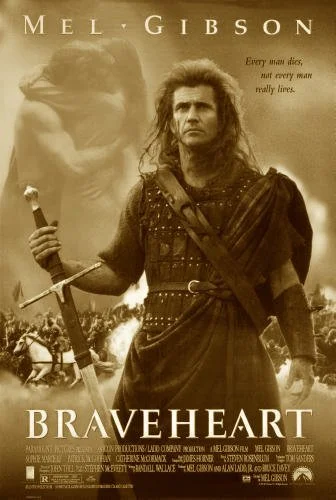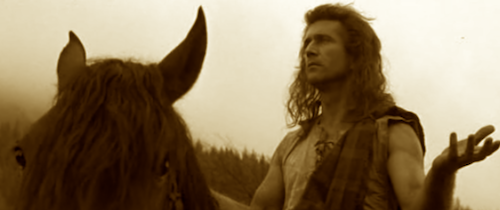Braveheart
This review is a part of the Best Picture Project: a review of every single Academy Award winner for the Best Picture category. Braveheart is the sixty eighth Best Picture winner at the 1995 Academy Awards.
I'm not holding anything back. I hate Braveheart, and its macho fest tediousness for three hours. I find the insatiable amounts of combat a bore, in a story that could have been told effectively in half the time. William Wallace's quests to restoring freedom in Scotland after England's takeover is a fantastic tale, that feels like slight fodder for Mel Gibson to shove in as many fights and speeches as possible here. If you're into modern war epics that rely heavily on their action and scale above storytelling, then Braveheart is absolutely your cup of tea.
For me, this is a gross indulgence that never ends. At least in a film like The Return of the King, a multitude of events are happening as war takes place. Here, the wars are the main events (and borderline the only events), so strap in. What I will say amongst my complaining is that the special effects (poorly aged or not) are rather inventive for their time, especially at the tail end of the practical-effects-only era (when CGI has replaced most subsequent instances). While I can't stand the amount of fighting, all of the choreography is still well assembled, so this film is a feast for the action fanatics.
Although the speeches and battle sequences are Braveheart’s strengths, the mass excess of both gets tiresome very quickly.
Then we have the actual swan song of William Wallace, which may be the only scene I actually love. A final beckoning in honour of one's motherland. It's well acted by Gibson, and at least one hell of an ending note for a film that strived to be this weighted. Otherwise, Braveheart, for me, is just too much. The waving of genitals and buttocks in the wind are signs of free will and a hatred towards the English's oppression of Scotland, and yet here these actions feel like additional pieces in Braveheart's quest to be the most bro-heavy film of the '90s. It succeeded too well, and is now one of the remaining overly manly films of all time, where excess supersedes nuance. Luckily I'm not a stickler for accuracy, and I won't even begin to go down the road of historical fabrications.
Was giving Best Picture to a film about a talking pig’s mission to become a sheep dog too much to ask?
Andreas Babiolakis has a Masters degree in Film and Photography Preservation and Collections Management from Ryerson University, as well as a Bachelors degree in Cinema Studies from York University. His favourite times of year are the Criterion Collection flash sales and the annual Toronto International Film Festival.





